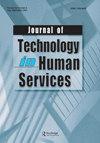理解数据驱动的组织文化——以巴尔的摩家庭联盟为例
IF 1.5
Q2 SOCIAL WORK
引用次数: 3
摘要
摘要长期以来,人们一直鼓励人力服务组织利用绩效衡量来跟踪其效率和有效性。但最近的趋势已经超越了对结果的衡量,而转向了对围绕方案影响的大型、往往混乱的数据集的管理。考虑到跟踪绩效指标所需的资源,组织数据有可能对非营利组织有价值(即拨款、筹款),但数据是否可以被视为组织价值?通过对马里兰州巴尔的摩的一家人类服务组织Family League的多方法案例研究,这项研究发现,该组织的员工对数据驱动的努力有不同的态度,这表明数据作为一种组织价值尚未得到巩固。以家庭联盟为例,本研究探讨了组织如何促进内部文化,阐明数据的含义,并将数据纳入决策过程。这项研究为斯科特的制度理论增加了第四个支柱,该理论旨在促进知识利用,将其作为组织内部秩序的基础。本文章由计算机程序翻译,如有差异,请以英文原文为准。
Understanding Data-Driven Organizational Culture: A Case Study of Family League of Baltimore
Abstract Human service organizations have long been encouraged to utilize performance measurement to track their efficiency and effectiveness. But recent trends move beyond the measurement of outcomes to the management of large, often messy, datasets surrounding programmatic impact . Given the resources required for tracking performance measures, organizational data has the potential to be of value for nonprofit organizations (i.e., grants, fundraising), but can data be considered an organizational value? Using a multimethod case study of Family League, a human service organization in Baltimore, Maryland, this research found that there are varying attitudes about efforts to be data driven among staff of the organization suggesting that data as an organizational value has not yet been solidified. Utilizing Family League as an example, this research explores how organizations can promote an internal culture that clarifies the meanings of data and the incorporation of data into decision-making processes. This research adds a fourth pillar to Scott’s Institutional Theory that seeks to promote knowledge utilization as the basis of order within an organization.
求助全文
通过发布文献求助,成功后即可免费获取论文全文。
去求助
来源期刊

JOURNAL OF TECHNOLOGY IN HUMAN SERVICES
SOCIAL WORK-
CiteScore
4.20
自引率
6.70%
发文量
6
期刊介绍:
This peer-reviewed, refereed journal explores the potentials of computer and telecommunications technologies in mental health, developmental disability, welfare, addictions, education, and other human services. The Journal of Technology in Human Services covers the full range of technological applications, including direct service techniques. It not only provides the necessary historical perspectives on the use of computers in the human service field, but it also presents articles that will improve your technology literacy and keep you abreast of state-of-the-art developments.
 求助内容:
求助内容: 应助结果提醒方式:
应助结果提醒方式:


